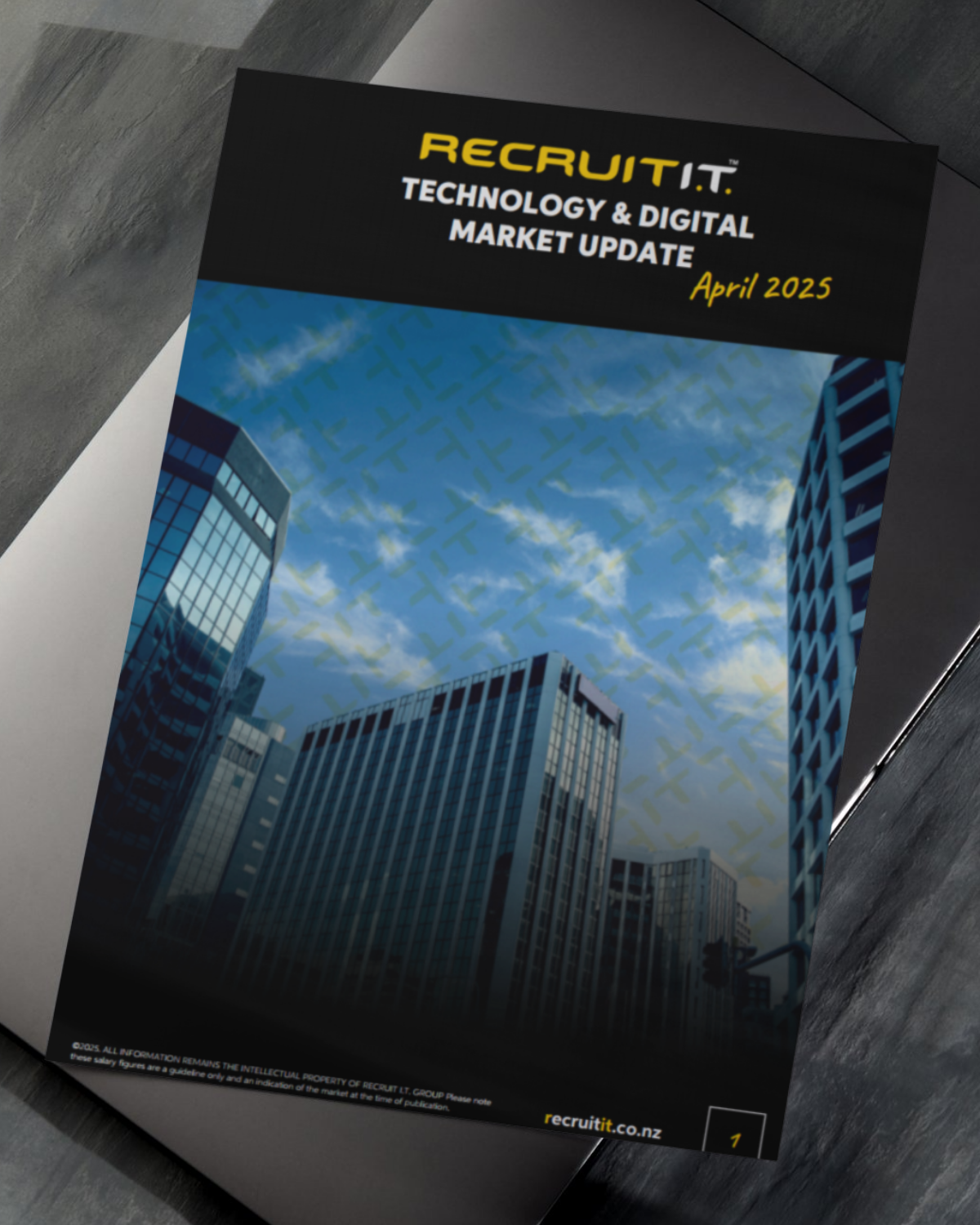Contracting in NZ
Contracting gives you flexibility, variety, and the chance to work on projects that make an impact. At Recruit I.T., we connect tech professionals with contract opportunities across Aotearoa, providing guidance on rates, market trends, and the support you need to succeed as a contractor.
Why Go Contracting?
Not sure where to begin? Maybe you’re between roles, not ready to lock into something permanent, or simply enjoy project-based work with more flexibility.
In New Zealand’s tech industry, independent contractors play a vital role. Many of our clients need experts for a specific project or outcome rather than a permanent hire. They turn to us because we know the market inside out and can quickly connect them with the right capability.
Contracting can be hugely rewarding, but it’s not the right fit for everyone. Before you take the leap, here are a few things worth considering:
- Pros and Cons of Contracting
- How to Set Yourself Up
- Contracting with Recruit I.T.
- Our Contractor Rate Guide
Pros and Cons of Contracting
Pros
- Flexibility: As a contractor, you set the pace. Enjoy freedom between projects and fit work around your lifestyle.
- Broader Experience: Each contract exposes you to new projects, industries, and teams, helping you grow your skills and strengthen your CV.
- Financial Rewards: Contractors are often paid at a higher rate than permanent staff, with the potential to earn more overall.
- Networking: Moving between contracts means meeting new people, building your reputation, and uncovering fresh opportunities.
- Variety and Challenge: If you thrive on change and dislike routine, contracting offers constant new challenges.
Cons
- Less Security: Contracts usually run 3–6 months, and contractors are often the first to be affected by restructures or cost-cutting.
- Irregular Income: Gaps between contracts are possible, so budgeting becomes essential.
- Limited Training: Professional development is your responsibility—you’ll need to fund and plan for courses or certifications.
- Admin Load: From taxes to invoicing, there’s admin to manage. Partners like Hnry can help streamline this.
- Always Searching: You’ll need to line up your next role before your current contract ends. Working with a recruiter like Recruit I.T. makes this easier.
- No Paid Leave: Contractors don’t receive annual or sick leave—if you’re not working, you’re not earning.
Support for Contractors
Contracting can be rewarding, but it also comes with questions. We make it easier to navigate the process, especially if you’re new.
- Transparent Setup: We’ll walk you through how PAYE, GST, invoicing, and IRD requirements work — including what you’ll need to register and what systems we use.
- Dedicated Consultant Support: Your consultant is your contact throughout your contract. We’ll check in regularly and work with you to solve issues, adjust timelines, or explore your next role.
- Resources for New Contractors: From setup guides to IRD registration checklists and timesheet FAQs — we’ll send you everything you need to get started with confidence.
- Feedback Loops: We’ll ask how things are going — and take it seriously. Your input helps us continuously improve how we support both you and the clients we work with.
Frequently Asked Questions:
If you are after information on a particular skill set that isn’t outlined in our Salary Guides or Market Updates, please contact us directly.
Contracting with Recruit I.T.
Benefits of Contracting with Recruit I.T.
We’re more than just a recruiter—we’re your advocate. Our consultants keep your contracts moving and connect you with new opportunities across our network.
Why contract with us?
- Faster Payments: As BTCI approved with IRD, we handle invoicing and pay you quicker.
- Discounted Insurance: Access affordable PI and PL cover.
- Simple Systems: Cloud-based timesheets and payslips, easy and reliable.
Payments Made Simple
You’ll be paid monthly through our secure payroll system, with clear schedules so you always know when to expect payment. Our finance team is here if you ever hit a snag.
Insurance Sorted
Contractors need their own PI and PL insurance. We make it easier with discounted options that protect you financially and give you peace of mind.
Contractor Rate Guide
As one of New Zealand’s leading agencies in the technology sector, we have access to a range of salary data, particularly around contractor rates in the current market. Please feel free to download your complimentary Recruit I.T. Salary Guide covering contractors’ market rates.
If you are after a particular skill set that isn’t outlined in our Salary Guide or would like to speak to one of our consultants to understand the market and demand for contracting in your chosen skillset then, please
get in touch.
Contract Roles Available
Contractor Resources
Whether you're new to contracting or a seasoned professional, these tools and guides are here to help. Download our free resources or read some of our blogs and updates.







